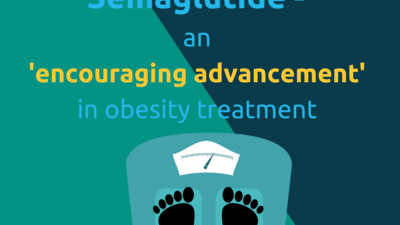Don't Blame Fat People For Obesity
Who Is To Blame For The Obesity Crisis?
Headlining in The Times today was an article on not blaming the obese for the obesity crisis.
It goes onto read; ‘Fat people should not be held responsible for their weight because it is mostly down to genes and the abundance of snacks and fast food’. The negative attitude towards obese people and telling them to ‘pull themselves together’ without the use of proper weight loss programs and a weight loss diet made them eat more and pushed up the cost of treating them, said Susan Jebb a professor of diet and population health at the University of Oxford.
Conservative MPs said that the obesity crisis would not be resolved unless people took responsibility for their size and did more weight loss exercise.
Britain has the biggest weight problem of any large European country, with two thirds of men and more than half of women classified as overweight or obese. Last week a study forecast that without the correct weight loss diet plans 38% of Britons would be obese by 2025, making the country the fattest in the continent.
Is There More To Weight Loss Than Willpower?
Professor Jebb, the senior obesity adviser to Public Health England and the National Institute for Health and Care Excellence, said that it was wrong to blame a “national collapse in will-power”. The real problem, she argued, was easy access to food and aggressive marketing, which affected people genetically programmed to eat more. As well as a lack of knowledge about proper weight loss exercise routines.
“Obesity has increased so greatly over the last few decades. That’s not a national collapse in willpower and a lack of weight loss exercise. It’s something about our environment that has changed,” Professor Jebb said. “You need in some cases a superhuman effort to reduce your food intake. Is that their fault? I don’t think it is.”
So What’s Causing Obesity?
Researchers estimate that genes account for 20-75% of weight problems. The drive to consume extra calories is more dangerous because unhealthy food is harder to avoid without a beneficial weight loss diet, Professor Jebb said. “If you’re the kind of person for whom it takes a lot of food to make you feel full, of course you’re going to have a harder time controlling your food intake. Some people with normal weight have a view that people could eat differently but there’s good biological evidence that…it’s much harder.”
Speaking before her appearance at The Times Cheltenham Science Festival this Summer, she added that haranguing people drove the overweight to eat more. In 2014 a study involving 3,000 British adults found that those who had experienced “weight discrimination” put on 0.95kg (2lbs) on average while the rest typically lost 0.71kg. Last year another survey of 2,300 Britons found widespread “anti-fat attitudes”, with people ages between 18 and 25 the most likely to regard “fat” as an insult and to say that obese people could control their weight with weight loss exercise if they wanted to.
The Role Of Personal Responsibility
Will Quince, a Tory MP and prominent critic of the government’s plans for a tax on sugary drinks, said that individuals needed to be responsible for their weight loss and their level of weight loss exercise. “As someone who used to weigh over 20 stone I know the first step is to recognise that you have a problem and that you personally can do something about it,” he said. “Personal attitude is important or you will fail when it comes to a weight loss diet”.
“Obesity” the NHS says on its website is, “is generally caused by eating too much and moving too little”. This sounds simple. It isn’t, as there is a lot more to weight loss exercise than meets the eye.
Genetics should certainly shoulder a large share of the blame. Studies have identified dozens of genes that drive the body to store more fat than it should, or leave people permanently wanting more calories than they can burn.
For more weight loss tips, catered bespoke to your needs – talk to us.

Make this year the year you achieve your goals
Check your BMI and Healthy goal weight
A good way to check if you are a healthy weight is to use the Body Mass Index (BMI) Calculator.
Looking to start your weight loss journey, then take action today!
Book an appointment with one of our GMC-Registered Doctors who are weight loss experts and can ensure you get the best programme for you. Alternatively request your medication online using our online prescription service.








